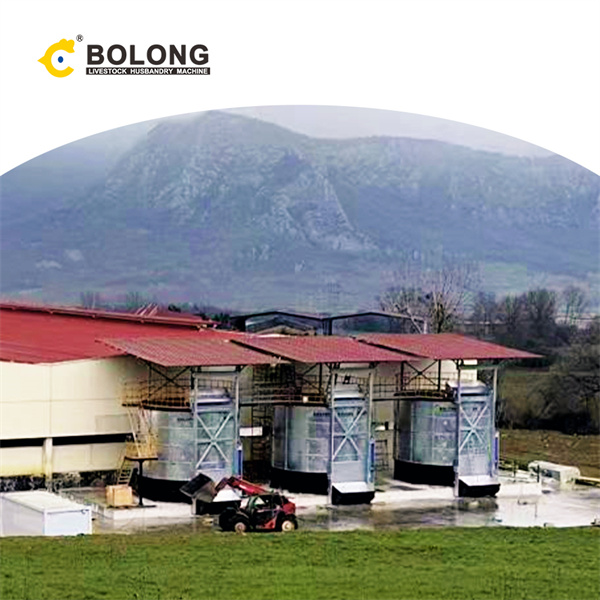Introduction: Organic farming relies on sustainable practices and natural inputs. Bolong Fermentation Tanks play a vital role in organic farming by producing high-quality organic fertilizer from livestock manure. This article explores the benefits of Bolong Fermentation Tanks for organic farming.

Natural Fertilizer Production: Bolong Fermentation Tanks convert livestock manure into compost, a natural fertilizer rich in organic nutrients. This compost is ideal for organic farming, as it enhances soil fertility without the use of synthetic chemicals, supporting the principles of organic agriculture.
Soil Health and Productivity: The compost produced by Bolong Fermentation Tanks improves soil structure, water retention, and nutrient availability. These benefits promote healthy plant growth and increase crop yields, aligning with the goals of organic farming to produce high-quality, nutritious food.
Sustainable Manure Management: Organic farms often have to manage large quantities of livestock manure. Bolong Fermentation Tanks provide an efficient and sustainable solution for manure management, reducing waste volume and transforming it into a valuable resource. This supports the closed-loop systems integral to organic farming.
Case Study: An organic vegetable farm integrated Bolong Fermentation Tanks into its operations. The tanks processed the farm’s livestock manure, producing compost used to fertilize the vegetable crops. The farm observed improvements in soil health and crop yields, and the compost met the stringent requirements for organic certification. The use of Bolong Fermentation Tanks supported the farm’s commitment to sustainable and organic practices.

Conclusion: Bolong Fermentation Tanks play a crucial role in organic farming by producing natural fertilizer, improving soil health, and providing sustainable manure management solutions. These benefits support the goals of organic agriculture and contribute to the production of high-quality, organic food.